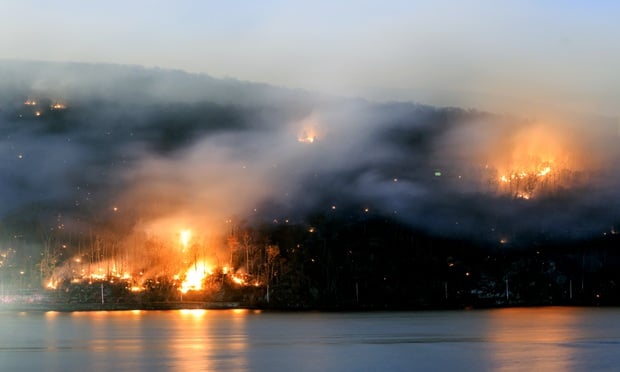Insurers going broke and a resultant national economic upheaval are "highly likely" unless state and federal governments, the public and insurers take steps to reduce the impact of catastrophe losses, according to a consulting firm analysis.
The study--by Needham, Mass.-based TowerGroup--calls for actions to halt growth in areas susceptible to natural catastrophe, reward disaster-resistant building, bolster insurer reserves and reinsurance backups, and improve flood coverage
It warned that unless there is a "concerted effort by invested parties to support a holistic solution to catastrophe management, the dire predictions of insurers' insolvency and general economic upheaval in the United States may come to fruition."
In addition to a finding by meteorologists of a trend of increasing hurricane activity through 2020, the report also noted a prediction of a high probability that a strong earthquake will occur in the near future in Southern California.
According to the author of the study-- Karen Pauli, a senior analyst with TowerGroup's Insurance research practice--all interested parties must work in concert "to effect the long-term change needed to reduce the risk posed by today's catastrophe landscape."
Among the specific recommendations in the report:
o Federal laws requiring state building codes that mandate buildings with strength to withstand certain catastrophe levels, and excluding aid to states that fail to pass minimum building codes.
o Government tax credits to insurance carriers that set aside funds for catastrophe claims.
o Tax credits on the purchase of catastrophe-resistant features or for retrofits against catastrophe
o Overhaul of the National Flood Insurance Plan to reflect current real estate values and eliminate subsidies for individuals whose properties are repeatedly damaged by catastrophes.
o Develop new insurance products and consumer education programs to improve the response to catastrophe risk and change the unsafe activities of policyholders.
"As a matter of public policy, the time may be approaching to call a halt to the rapid and concentrated development in catastrophe zones," said Ms. Pauli.
"Solutions like these are not easy to implement, but the catastrophe impact of the past several years requires new thinking. Now is not the time for the same old resolutions," she added.
TowerGroup said Ms. Pauli's research report--entitled "Property and Casualty Insurance"--will be followed by a complementary report on how insurers can leverage technology in support of their catastrophe management efforts.
TowerGroup Reports can be obtained by calling (781) 292-5200 or e-mailing [email protected].
Want to continue reading?
Become a Free PropertyCasualty360 Digital Reader
Your access to unlimited PropertyCasualty360 content isn’t changing.
Once you are an ALM digital member, you’ll receive:
- Breaking insurance news and analysis, on-site and via our newsletters and custom alerts
- Weekly Insurance Speak podcast featuring exclusive interviews with industry leaders
- Educational webcasts, white papers, and ebooks from industry thought leaders
- Critical converage of the employee benefits and financial advisory markets on our other ALM sites, BenefitsPRO and ThinkAdvisor
Already have an account? Sign In Now
© 2024 ALM Global, LLC, All Rights Reserved. Request academic re-use from www.copyright.com. All other uses, submit a request to [email protected]. For more information visit Asset & Logo Licensing.








